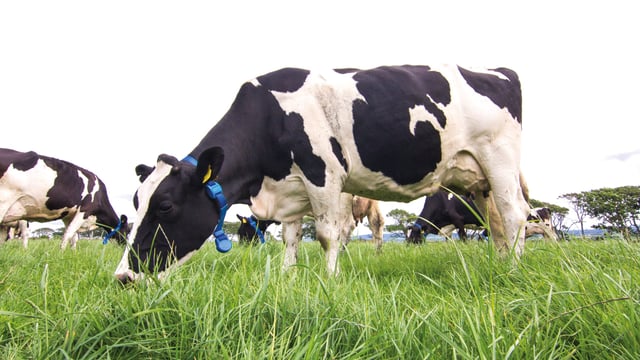'You have unified opposition to these proposals from just about everyone' - ILMA
The Independent Licensed Merchants Association (ILMA) has called on the Department of Agriculture, Food and the Marine (DAFM) to work with them to reach a solution that would allow anti-parasitic veterinary medicines to continue to be sold - over the counter - by a responsible person (RP) after January 2022.
Stricter rules around the use of anti-parasitics, to be introduced next year, will see them become prescription-only medicines (POMs).
But with 75% of anti-parasitic medicines currently sold by 1,600 RPs in licensed merchants and co-ops around the country, the ILMA is eager to ensure that they remain relevant in the supply route of these products.
"You've got unified opposition to these proposed changes to veterinary medicines, from just about everyone," Ian Scott, secretary general of the ILMA told Agriland.
"These people are trained, they have a qualification - which is a four-figure sum of euros to obtain, between training and the exam. And now, we are faced with not having any role at all.
"If the will was there on behalf of the DAFM to solve this, it can be solved. But there is no will, they want to move all this business across to the vet channel," he said.
Despite confirmation from the DAFM that a farmer will be able to purchase anti-parasitic veterinary medicines from any vendor currently selling them, once a prescription has been issued, the ILMA said this does not mean that vets will not become a one-stop shop for these products, and that the RP will be bypassed.
"But what can happen is that, when a farmer goes to a vet for a prescription, they will just buy the product at the same time.
He said that if this happens, under the new POM system, then licensed merchants and co-ops are going to lose out.
The secretary general also referred to the special relationship between vet and farmer and said that a farmer might find it difficult to get a prescription from the vet, and then go elsewhere to buy the product.
The Veterinary Council of Ireland has confirmed to Agriland that, under the new system, a prescription must be issued by a vet before any medicine can be purchased.
The DAFM, too, has confirmed that a prescription must be issued to the system before a medicine can be bought.
The ILMA has also highlighted a potential issue with the existence of two prescribing systems on the island: one where anti-parasitic medicines are POMs in the Republic of Ireland (RoI); and a second where the same medicines are available in the north from a suitably qualified person (SQP) without a veterinary prescription.
When questioned about this issue in a recent interview with Agriland, the chief veterinary officer (CVO) at the DAFM, Martin Blake, pointed out that this would be illegal.
"There are many things that are different between north and south, and different laws apply across different parts of society. But the reality is that it is illegal. I am sure people may be tempted, but I have great faith in the fact that farmers are law-abiding.
The ILMA secretary general accepted that while this is illegal, having two prescribing systems on the island is, effectively, opening a door this kind of behaviour.
That solution, is for the RP to be allowed to continue to sell anti-parasitics without a prescription, he said.
The ILMA secretary general said that some vets have privately expressed their doubts about the new change.
He added that the ILMA wants to sit down with all stakeholders to find a resolution to this.
"We want to sit down with the VCI, the DAFM, the Health Products Regulatory Authority, the Irish Farmers Association, Veterinary Ireland, the Irish Co-Operative Organisation Society.
"We cannot get through to them, there is a brick wall of silence on this."





